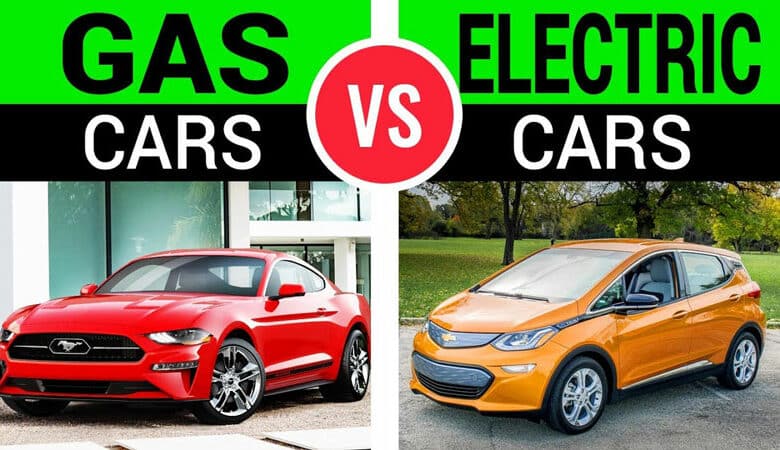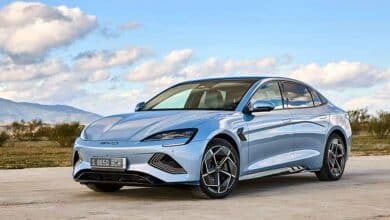How Electric Cars Compare in Horsepower to Gasoline Cars

Electric cars have been gaining popularity in recent years due to their eco-friendliness and cost-effectiveness. However, one question that often arises is how electric cars compare to gasoline cars in terms of horsepower. In this article, we will explore the differences between the two types of cars in terms of horsepower, their advantages and disadvantages, and how they stack up against each other.
The Basics of Horsepower
Before we dive into the differences between electric and gasoline cars, let’s first understand what horsepower is. Horsepower is the unit of measurement used to measure the power output of an engine. It is a way to measure the engine’s ability to perform work, such as moving a vehicle.
Electric Cars
Electric cars are powered by electric motors that use electricity stored in batteries to propel the vehicle. Unlike gasoline cars, electric cars do not have an internal combustion engine or a transmission system. This means that electric cars do not have a traditional horsepower rating.
Electric Car Motors
Electric car motors are designed to be efficient and have high torque. Torque is the twisting force that turns the wheels of the car. Electric car motors have instant torque, which means they can accelerate quickly from a standstill. This is because electric motors do not need to build up revolutions per minute (RPM) like gasoline engines do.
Power Ratings
Although electric cars do not have a traditional horsepower rating, they have a power rating measured in kilowatts (kW). The power rating of an electric car motor can range from 50 kW to 400 kW. A higher kW rating indicates more power and faster acceleration.
Gasoline Cars
Gasoline cars are powered by internal combustion engines that burn gasoline to create energy to power the vehicle. Gasoline engines have a horsepower rating, which is a measure of their ability to do work.
Horsepower Ratings
Gasoline engines have a wide range of horsepower ratings, from as low as 80 horsepower to over 700 horsepower in high-performance sports cars. A higher horsepower rating generally indicates more power and faster acceleration.
Gasoline vs. Electric Cars in Horsepower
In terms of horsepower, gasoline cars generally have a higher rating than electric cars. This is because gasoline engines have been in development for over a century, while electric car technology is still relatively new. Gasoline engines can produce more power due to their larger displacement and the fact that gasoline contains more energy than batteries.
However, it is important to note that electric cars have other advantages over gasoline cars, such as their efficiency and instant torque.
You may like also: Why the Honda Civic is a Great Used Car Buy
Advantages and Disadvantages of Electric and Gasoline Cars
Advantages of Electric Cars
- Eco-friendliness: Electric cars produce zero emissions and are much better for the environment than gasoline cars.
- Cost-effectiveness: Electric cars are cheaper to maintain and have lower fuel costs than gasoline cars.
- Instant torque: Electric cars have instant torque, which means they can accelerate quickly and provide a smooth ride.
Disadvantages of Electric Cars
- Limited range: Electric cars have a limited range and may require frequent recharging.
- Longer recharge times: It takes longer to recharge an electric car than it does to refuel a gasoline car.
- High upfront costs: Electric cars are typically more expensive to purchase than gasoline cars.
Advantages of Gasoline Cars
- Longer range: Gasoline cars have a longer range than electric cars and can be refueled quickly.
- Widespread availability: Gasoline is readily available at gas stations throughout the world.
- Lower upfront costs: Gasoline cars are typically less expensive to purchase than electric cars.
Disadvantages of Gasoline Cars
- Environmental impact: Gasoline cars produce harmful emissions and contribute to air pollution, which is harmful to the environment and human health.
- Higher maintenance costs: Gasoline cars require more maintenance, such as oil changes and tune-ups, than electric cars.
- Lower fuel efficiency: Gasoline cars are not as fuel-efficient as electric cars, which means they have higher fuel costs in the long run.
The Future of Electric and Gasoline Cars
Electric cars are rapidly gaining popularity, and many countries around the world have set goals to phase out gasoline cars in the coming years. The advancement of electric car technology, such as the development of longer-lasting batteries and faster charging times, is making them more appealing to consumers.
However, gasoline cars are still a popular choice for many people due to their longer range, widespread availability, and lower upfront costs. It is likely that gasoline cars will continue to be used for many years, but they may eventually be phased out as electric car technology continues to advance.
Conclusion
In conclusion, electric cars and gasoline cars have their own unique advantages and disadvantages. In terms of horsepower, gasoline cars generally have a higher rating than electric cars. However, electric cars have other advantages, such as their efficiency and instant torque. As electric car technology continues to advance, it is likely that it will become more popular and eventually replace gasoline cars as the primary mode of transportation.
FAQs
How does the range of electric cars compare to gasoline cars?
Electric cars generally have a shorter range than gasoline cars, but this is improving as battery technology advances.
Are electric cars more expensive to maintain than gasoline cars?
No, electric cars are typically cheaper to maintain than gasoline cars due to their simpler design and fewer moving parts.
Do electric cars have good acceleration?
Yes, electric cars have instant torque, which means they can accelerate quickly and provide a smooth ride.
Can electric cars be charged at home?
Yes, most electric cars can be charged at home using a standard household outlet or a dedicated charging station.
Are there any environmental benefits to owning an electric car?
Yes, electric cars produce zero emissions and are much better for the environment than gasoline cars.


